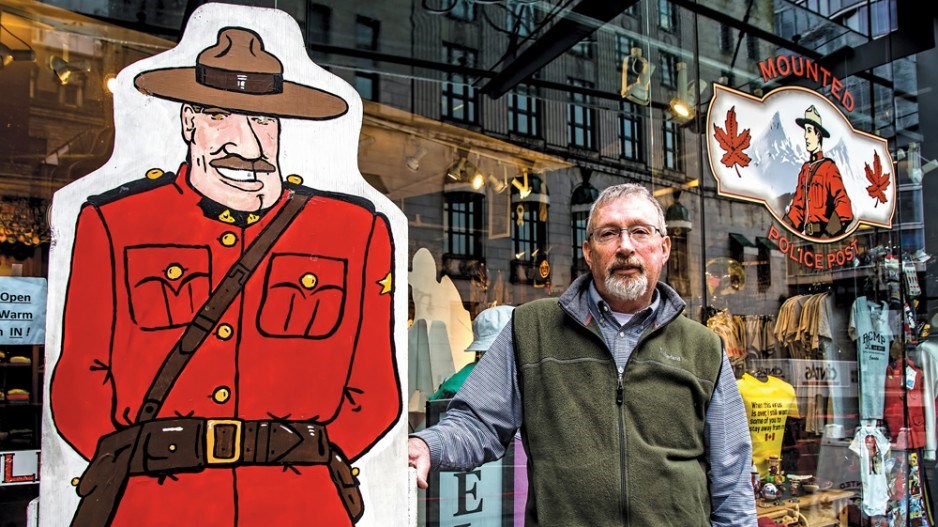Tourism and hospitality business owners are excited to return to some semblance of normalcy, and increased sales thanks to Vancouver’s cruise season set to launch April 7.
The Vancouver Fraser Port Authority estimates that the city will see 310 cruise ship calls in the 2022 season – up 7.6 per cent from the 288 ship calls in 2019.
Cruise ships will not initially be as filled as they were in the days before COVID-19, but occupancy is expected to increase as the season progresses.
“Cruise ship traffic is a big part of our business, as are conventions and conferences,” said Mounted Police Post principal Tom Murphy.
His store on West Cordova Street, near Canada Place, sells T-shirts, hats and other police memorabilia items often sought by visitors.
Gastown restaurants are also readying to welcome tourists.
Peter Buckley, president of the 15-location Old Spaghetti Factory, told BIV that his Gastown restaurant is hiring, and ramping up operations for its best summer since 2019.
“We do not believe it is going to be anywhere near the level of pre-COVID, but we’re hopeful that business is going to be up over 2020, and 2021 summer seasons.” he said.
“The foot traffic associated with cruises was significant pre-COVID. It was not only Gastown that benefited from that, but the downtown core as well.”
Buckley likes the federal government’s move to stop requiring vaccinated visitors, as of April 1, from having to show negative COVID-19 tests in order to enter the country.
That change takes effect at Canada’s land borders, as well as the country’s airports.
Cruise passengers must show proof of a negative antigen COVID-19 tests taken at least one calendar day before getting on cruise ships, and must have those tests uploaded to the ArriveCan app on their phones. Another option for them is to have a more accurate PCR test taken within three calendar days of boarding ships.
Some confusion around testing requirements may stem from Ottawa having twice in the past month changed its rules for cruise-passenger testing.
On March 7, Transport Minister Omar Alghabra said all cruise passengers would have to be tested upon boarding, and then a second time, while on board, and that they must be found to be negative for COVID-19 before being allowed to disembark from cruise ships and re-enter Canada.
He then changed that policy on March 17, when he said passengers no longer need to bother with the cost and inconvenience of being tested while on board ships.
The change was good news because uploading second tests to the ArriveCan app while on cruise ships may have been challenging given intermittent Wi-Fi service when ships pass between Haida Gwaii and northern Vancouver Island, said Cruise Lines International Association - North West & Canada (CLIA) spokesman Barry Penner.
He told BIV that he would like a standard for testing that is harmonized with U.S. guidelines.
All major cruise lines that are CLIA members are following the U.S. Centers for Disease Control and Prevention’s voluntary guideline that cruise passengers must have negative antigen tests taken within two full days of getting on cruise ships in the U.S.
“Canada is saying the tests must be taken the day before, so we’re not quite in alignment,” Penner said.
“It’s a slightly different standard, and whenever that happens, it can create some extra challenges for the staff who have to operate in different jurisdictions.”
One regulation that has been consistent is that all passengers on cruise ships that dock in Canada, with only rare exceptions, must be vaccinated.
Cruise lines must follow Canada’s COVID-19 health and safety regulations in order to dock at the country’s ports.
“I wouldn’t expect the first ships arriving in Vancouver to be as full as they were in 2019,” he said. “That means with fewer passengers. Initially, there won’t be the same number of tourists coming to spend money, per ship, as there was in 2019. It’s going to take a while to ramp things up.”
He added that his sector is looking forward to rebuilding the industry that pre-pandemic employed 17,000 people in B.C. •




